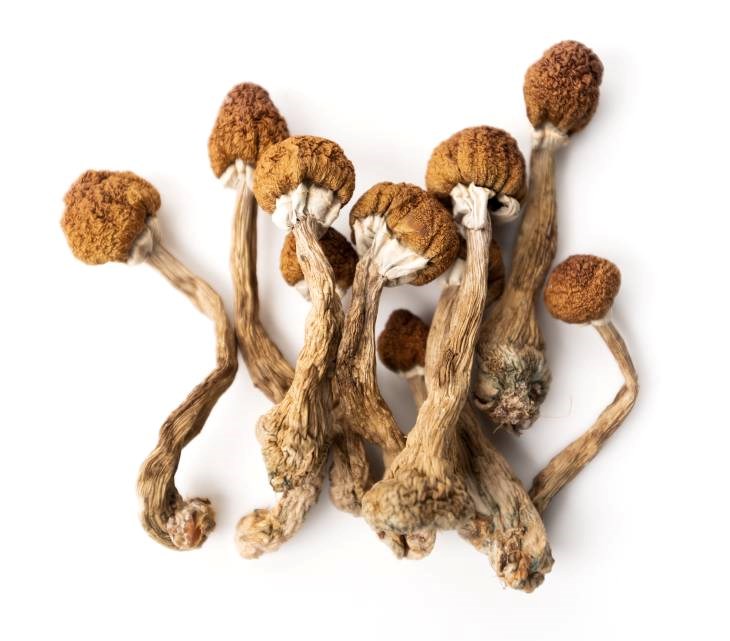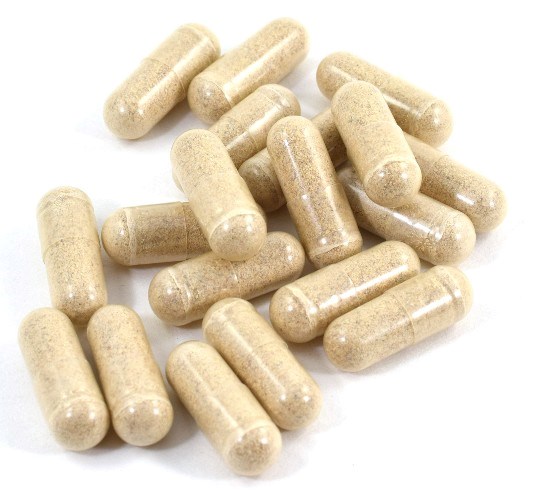Psychedelics (or hallucinogens) are a group of drugs that can cause large changes in the chemicals in your brain. This can affect how you see and feel reality, causing things like hallucinations. Two psychedelics being used in therapy are MDMA (ecstasy) and psilocybin. Below we will explain these substances in more detail.
Psilocybin
 Psilocybin is a natural psychedelic found in many mushroom species around the world. Psilocybin can bring about hallucinations such as seeing vivid colours, distorted shapes and seeing or hearing things that aren’t there. People who use Psilocybin report having reflective thoughts and feeling emotions differently during intoxication. These effects can vary widely among individuals and misuse can lead to anxiety, nausea, or a challenging experience known as a “bad trip”.
Psilocybin is a natural psychedelic found in many mushroom species around the world. Psilocybin can bring about hallucinations such as seeing vivid colours, distorted shapes and seeing or hearing things that aren’t there. People who use Psilocybin report having reflective thoughts and feeling emotions differently during intoxication. These effects can vary widely among individuals and misuse can lead to anxiety, nausea, or a challenging experience known as a “bad trip”.
Follow the link to find out more about psilocybin and other psychedelics: https://positivechoices.org.au/teachers/hallucinogens-factsheet
Early research with small sample sizes suggests that psilocybin assisted therapy can be safe when delivered in a controlled environment. It also shows promise in reducing the severity of depression symptoms in patients with major depressive disorder (MDD), a severe form of depression, when compared to patients taking a placebo drug with therapy. In clinical trials, a placebo drug looks and tastes like the drug being tested but does not have any effects. Researchers compare the results from participants who took the placebo to results from participants who took the drug (i.e., psilocybin) to rigorously assess the effects of the drug. There is also early research for psilocybin therapy compared to placebo in reducing end of life anxiety symptoms in patients with life threatening cancer.
When used medically, psilocybin is given as part of a highly structured psychedelic assisted therapy program. It is thought that psilocybin assists treatment by helping the patient trust the therapist and make them more open to flexible thinking. This type of treatment is only approved for patients who have depression that is not improved by other treatments. There are several approaches to treating depression that are more widely available. For more information, visit https://www.healthdirect.gov.au/depression#treatment.
MDMA
 MDMA or ecstasy causes the body’s central nervous system to speed up. Many users report a sense of euphoria, feeling more energised and emotionally open, and increased relatability to others. It's important to note that MDMA can also have risks, including nausea, dehydration and overheating. Other short-term effects can include anxiety and paranoia.
MDMA or ecstasy causes the body’s central nervous system to speed up. Many users report a sense of euphoria, feeling more energised and emotionally open, and increased relatability to others. It's important to note that MDMA can also have risks, including nausea, dehydration and overheating. Other short-term effects can include anxiety and paranoia.
Follow the link to find out more about MDMA: https://positivechoices.org.au/teachers/ecstasy-and-mdma-factsheet
Recent research on MDMA assisted therapy found large reductions in PTSD symptoms when compared with a placebo drug and therapy among a diverse sample. Everyone who was given MDMA in this trial experienced negative side effects during treatment including muscle tightness, nausea, and decreased appetite. When used medically, MDMA is delivered in a highly controlled environment to support structured therapy programs, rather than as a treatment by itself. Researchers think it may help improve the therapy process by increasing trust between the therapist and patient. Its activity in the brain could potentially help to reduce fear or negative emotions when revisiting traumatic events in patients with PTSD, which is useful for processing these events.